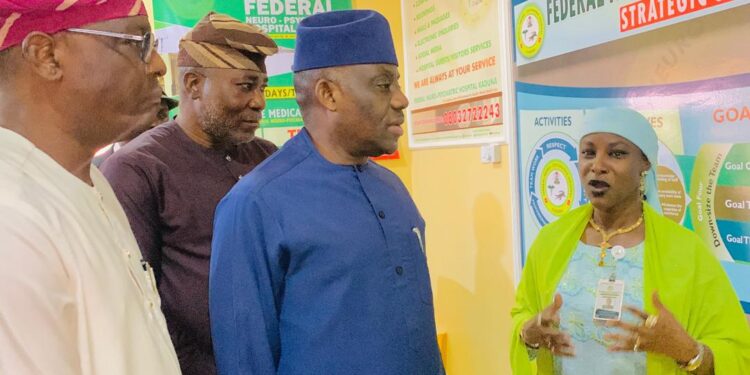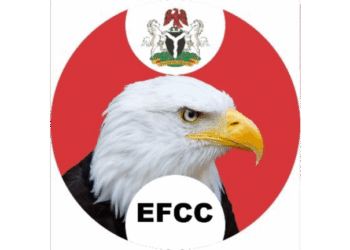Nigeria’s Minister of State for Health and Social Welfare, Dr. Tunji Alausa, commissioned several critical projects yesterday, signaling the federal government’s commitment to improving healthcare infrastructure.
Among the projects inaugurated were the Electronic Health Records and Alternative Power Supply at the Lawal Jafaru Isah Emergency Complex, as well as the solarization project at the dialysis unit within the Abdulkareem Jika Yusuf COVID-19 Intervention Centre.
This project includes a solar-powered borehole supported by a 10.2 KVA inverter with a lithium battery.
During the commissioning, Dr. Alausa revealed that the ministry is preparing an executive bill to present to President Bola Ahmed Tinubu, aiming to transform Federal Neuro-Psychiatric Hospitals into Specialist Hospitals.
He explained that while psychiatric services will remain the core focus, the name change will help expand care delivery and reduce stigma, making the facilities more accessible to the general public.
Dr. Alausa praised the leadership of Dr. Aishatu Yusha’u Armiyau at the hospital, noting that the progress made under her administration reflects President Tinubu’s commitment to fulfilling his campaign promises to Nigerians.
At the National Eye Centre in Kaduna, the Minister also inaugurated the Dr. G.O Adejor Optical Showroom and the Dr. M.B Alhassan Diagnostic and Laser Unit.
He took the opportunity to announce the federal government’s approval of a 50% electricity subsidy for public hospitals, aimed at reducing operational costs and enhancing service delivery.
Addressing the ongoing challenges in the healthcare sector, Dr. Alausa acknowledged the strain caused by the recent doctors’ strike, which has complicated efforts to secure the release of a kidnapped doctor from the Eye Centre.
He assured the public that the government is working diligently to ensure the doctor’s safe return.
On the issue of medical staff migration, Dr. Alausa discussed strategies to engage Nigerian medical professionals in the diaspora. He emphasized that despite the challenges inherited by the current administration, President Tinubu remains committed to improving the healthcare sector.
Efforts are underway to collaborate with state governments to expand Health Science Universities, with the goal of increasing annual health sciences enrollment from 24,000 to 100,000 students.
In her welcome address, Acting Chief Medical Director of the National Eye Centre, Dr. Aminatu Abdulrahman, highlighted the hospital’s achievements.
Established in 1979, the National Eye Centre serves as a specialist facility for eye care, training, and research. With 300 beds and a staff of 640, the hospital has provided care to 53,406 outpatients and performed 4,653 surgeries in 2023 alone.
Dr. Abdulrahman noted that the National Eye Centre continues to receive referrals from all 36 states of Nigeria, the Federal Capital Territory, and neighboring countries, underscoring its critical role in the region’s healthcare system.











